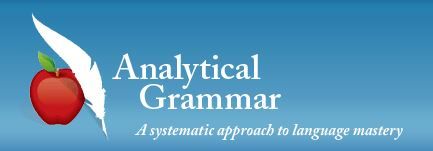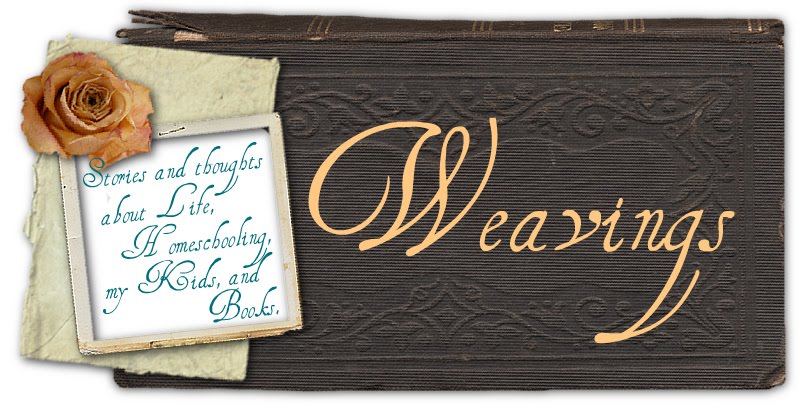
As my kids have grown older I have wanted to add more discussions to our literature selections and have looked at several resources to help me do this. Unfortunately, I have yet to find something that gets great discussions going without being overwhelming, until now. I recently had the opportunity to review a book from Analytical Grammar called The Eternal Argument by R. Robin Finley who is also the founder of Analytical Grammar.

The Eternal Argument offers "a framework for understanding Western Literature and Culture"and is a book for 8th grade and up. The Table of Contents includes:
Intro
1-Why Should We Read All Those Books?
2-How Do We Stuff Stuff Into Our Heads?
3-The Little Stinker
4-What Are the Two Sides Fighting About?
5-Does Someone Have to Be "In Charge"?
6-What is the Western Literature Platform?
7-Should We Quarantine Our Kids?
8-Really Old Guys: Ancients to the Middle Ages
9-Just the Old Guys: The Renaissance to Neo-Classicism
10-Somewhat Old Guys: The American & French Revolution
11-Newer Old Guys: The Romantics to the Realists
12-Newest Guys: The Naturalist to the Modernists
13-Stuff You Need to Know to Teach This Stuff
14-Now Let's Apply All This to the Books We've Discussed
15-Because It's All About Me...What Do I Think?
At the beginning of the book the author sets the premise that Western culture and literature are one big ongoing dispute.To help the parent or student understand why this is the author takes us back and discusses what sin is and introduces what she terms "The Little Stinker" or the negative tendencies humans have like evil, sin, and nastiness.
After that the reader is introduced to the two sides of the Eternal Argument - Humanists (Man is Perfectable) and Theists (Man is Flawed) along with thorough definitions of what these mean and how they can apply to literature. There is also an excellent depiction of what the author feels is the Western Literature "platform". This consists of the King James Bible, Greek & Roman Mythology, along with a smaller influence of Arthurian Legend.
After getting a good handle on these topics the reader is taken through a travel of history and throughout these chapters The Eternal Argument is examined and charts are given that show how shifts are taking place between the Humanists and the Theists. To tie everything up the reader is taken through such topics as literary vocabulary, elements of a plot, conflicts in literature, and point of view are given to help the teacher or reader to apply it to the books that being read.
Each chapter uses a book to apply the information that is being taught in the book. There are also discussion questions included at the end of each chapter. At the end of the book a chapter is included that goes through each book and applies how the Eternal Argument looks in each book along with the application of other literary terms. This is more of reference chapter written especially for the teacher to use once you have read one of the books covered in the previous chapter.
The author is unabashedly a Christian and doesn't hesitate to address that fact. On the other hand she also feels that that students shouldn't be quarantined from books that present an opposite point of view from what a family has. She encourages parents to present books with an opposite viewpoint and to discuss them with your students to help them learn to defend their viewpoint better when these ideas are presented to them in the real world.
I read this aloud to my two oldest children, Caleb (18) and Destini (14). This book gave us A LOT to discuss. It was interesting, funny, and thought provoking. At times I felt like I had found a kindred spirit with the author (shhh, don't tell my kids they would put it down to "mom weirdness"). The way she presented her ideas that form the Eternal Argument made so much sense to me and were very eye-opening to my kids.
I think we would all have to admit that the history chapters were some of our favorite and the ideas presented really helped to connect some dots. The chapter, "What is the Western Platform?" was also helpful since it really helped my kids see how pivotal mythology is to our literature. I can't say the mythology will be a favorite in our house, but this has helped my kids understand why we read it. The charts included that showed the swings between humanism and theism were also helpful in helping us "see" how history affected literature.
Even though The Eternal Argument could be read by a student, I found it very beneficial as a read-aloud. This is a book that needs to be discussed. I can't begin to say how helpful I found The Eternal Argument and how much I look forward to implementing this into our literature studies this year. One thing that I believe would helpful is a chart that walked the teacher or the student through the literary elements and the process of determining where a book falls on the pendulum swing of the Eternal Argument.
If you have been looking for a way to discuss literature with your students I highly recommended The Eternal Argument by R. Robin Finley which is available in paperback from Analytical Grammar for $24.95. This book should be on every homeschool mom's resource shelf!
You can also learn more about at The Eternal Argument.
Analytical Grammar on Social Media:
Facebook – http://www.facebook.com/analyticalgrammar
Twitter - http://twitter.com/AnalyticalGram



No comments:
Post a Comment